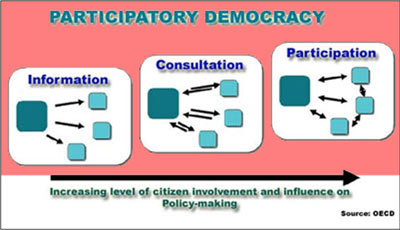
As colleagues at Harvest Collegiate High School, Andy Snyder and I talk a lot about the way humans develop. In this essay he presents a vision for how to reform social studies curriculum, one that I have seen him enact with good results: students who are engaged, thinking critically, and actively developing meaningful skills. Regardless of what you teach, and especially if you teach social studies, your students could also benefit from his ideas, written below, that help students engage in meaningful disciplinary skills.— John T. McCrann
Imagine a basketball coach with no hoops and no ball who provided a textbook history of  basketball, showed video of some of the greatest games, and imparted a passion for teamwork. But she never held a practic and the players never bounced a ball. How would her team do in a game? How well do our students and former students do as participants in a democracy—with all that we've taught them of history, geography, government, and economics? Knowledge, skills, and values are necessary aspects of a good civic education but the most important element has been left out—action. Civic duties involve doing things in the world—pushing us to go beyond knowledge, thinking skills, and values within our classrooms. Civic education requires practice working with others to take action.
basketball, showed video of some of the greatest games, and imparted a passion for teamwork. But she never held a practic and the players never bounced a ball. How would her team do in a game? How well do our students and former students do as participants in a democracy—with all that we've taught them of history, geography, government, and economics? Knowledge, skills, and values are necessary aspects of a good civic education but the most important element has been left out—action. Civic duties involve doing things in the world—pushing us to go beyond knowledge, thinking skills, and values within our classrooms. Civic education requires practice working with others to take action.
One in four Americans surveyed approve of the current Congress and less than half of the current president. What about at the grassroots? What percent of Americans regularly act on the insight that, "In a democracy, the highest office is the office of citizen?" The American people have been taught to be democratic citizens about as effectively as that basketball coach, with no hoops and no ball, taught her students to play basketball.
Civic Competence
The NCSS says, "The aim of social studies is the promotion of civic competence..." Civic competence isn't all or nothing. It can even be a means through which you engage students in other content. In other words, you can teach Ancient Egypt and also empower students to be participants in a democracy.
Civic competence enables people to be "active and engaged participants in public life." Instead, social studies students are often taught to be more informed spectators around historical (and occasionally contemporary) controversies, rather than participants ...
[ Full text ]
Comments powered by CComment